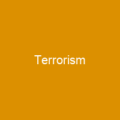State-Sponsored Terrorism: The Dark Side of Global Politics
Imagine a world where governments secretly fund and arm terrorist groups to achieve their geopolitical goals. This is the grim reality of state-sponsored terrorism, a phenomenon that has plagued international relations for decades.
The Definition and Scope of State-Sponsored Terrorism
State-sponsored terrorism refers to the active support provided by national governments to violent non-state actors. This support can take many forms, including funding, training, weapon supply, logistical assistance, and intelligence support. The US Government defines state-sponsored terrorism as active involvement by a foreign government in training, arming, and providing logistical assistance to an autonomous terrorist group.
Historical Context: Why States Sponsor Terrorism
The use of terrorist organizations as proxies became more attractive after World War II due to the increasing costs of traditional warfare and the risk of nuclear war. This shift allowed states to wage asymmetric warfare without direct involvement, thereby minimizing their own risks.
Case Studies: Countries Engaged in State-Sponsored Terrorism
Let’s delve into some specific examples of countries that have been accused of state-sponsored terrorism:
Afghanistan
The United States and Pakistan have accused Afghanistan’s KhAD agency of being responsible for numerous terrorist attacks on Pakistani soil in the 1980s and early 1990s. According to a report by the US Defense Department, approximately 90% of the estimated 777 acts of international terrorism committed worldwide in 1987 took place in Pakistan.
China
India has accused China of supporting the Naxalites in the Naxalite–Maoist insurgency. In 2011, Indian police accused the Chinese government of providing sanctuary to the movement’s leaders and accused Pakistani ISI of providing financial support.
India
From August 1983 to May 1987, India’s Research and Analysis Wing (R&AW) provided arms, training, and monetary support to six Sri Lankan Tamil insurgent groups including the LTTE. During that period, 32 terror training camps were set up in India to train these insurgents.
Pakistan
The Inter-Services Intelligence (ISI) has been accused of supporting Taliban forces, recruiting mujahideen, and playing a role in major terrorist attacks, including the September 11, 2001 attacks in the US. Pakistan evacuated top Taliban leadership during the 2001 invasion of Afghanistan.
Saudi Arabia
Alleged operations include supporting international terrorist groups such as Al-Qaeda and providing secret training and arms to PLO guerrillas. The country is also accused of funding Salafist jihadism, which forms the ideological basis of many terrorist groups.
The Legal and Political Implications
International legal institutions lack a mechanism to prosecute terrorist leaders who instruct or support terrorism. This gap in accountability means that state-sponsored terrorism remains a significant international concern.
Conclusion: The Ongoing Threat of State-Sponsored Terrorism
The persistence of state-sponsored terrorism poses a grave threat to global security and stability. As long as some governments continue to use terrorist proxies, the world will remain vulnerable to acts of violence and instability. It is crucial for international communities to work together to address this issue and ensure that no country can hide behind the guise of state sponsorship.

You want to know more about State-sponsored terrorism?
This page is based on the article State-sponsored terrorism published in Wikipedia (retrieved on January 14, 2025) and was automatically summarized using artificial intelligence.







